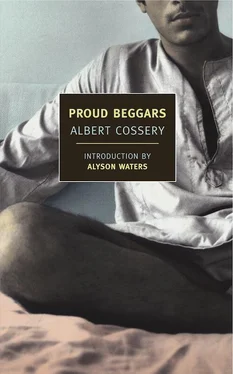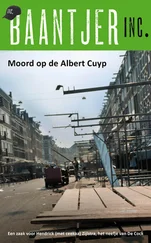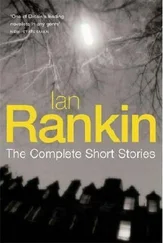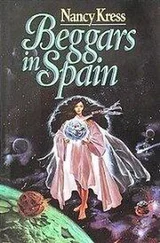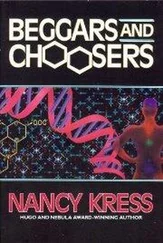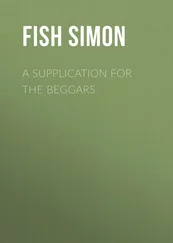Nour El Dine thought that by wearing a tarboosh, the young man would look more respectable. He imagined, wrongly, that Samir’s extreme youth carried with it the obvious signs of inversion.
“A tarboosh! Oh no! I want a car. Why don’t you offer me a car?”
“That’s beyond my means,” answered Nour El Dine.
“Calm down. That was a joke. What would I do with a car? Besides, to be perfectly honest, my esteemed father has one. I’ve never ridden in it. I would rather die.”
“Why is that?”
“I won’t tell you. You wouldn’t understand.”
Again a silence settled between them, broken only by the buzzing of the flies, now more perfidious than ever. Nour El Dine was no longer breathing; he was thinking quickly, gazing at the young man whose last words seemed to condemn him irrevocably. To accuse him like this of incomprehension was to cast him off into the depths, to let him know he was an obtuse being unworthy of confidence. It was the most severe kind of insult his self-respect could suffer. He couldn’t let it pass without reacting.
Looking once more toward the shop entrance — this was becoming a veritable mania — he breathed deeply, then said with a trembling voice, as if discussing the end of the world, “How can you say that I’m incapable of understanding? My dear Samir, your distrust of me breaks my heart. I would like to know everything that concerns you. If it were in my power, I would be happy to relieve your troubles. I hope that you aren’t suspicious of me.”
“You’re very kind, Inspector,” said the young man, smiling. “But I don’t have troubles.”
“Then what makes you so bitter? Forgive me, but from your words, I thought I discerned that your relationship with your father isn’t the best.”
“Don’t mention that man to me. I hate him!”
Nour El Dine expressed his consternation by a grotesque look. So he wasn’t wrong; what he had read in Samir’s eyes really was hatred.
“That’s just it! My dear Samir, you astound me. How can you hate your own father?”
“You really want to know? All right! It’s very simple: my father is a man like you.”
“What do you mean?” asked Nour El Dine, growing pale.
“Oh, no! It’s not what you think. My father is a lady’s man. Your resemblance to him stems from something deeper, even more hateful.”
“I confess I don’t understand.”
“I already told you that you wouldn’t understand. But it’s not at all important.”
It was the first time he’d talked about his father to anyone, and it seemed to him like a sign of destiny that he had done so precisely to this pederast police inspector worried about his reputation. Who else but Nour El Dine was qualified to receive this terrible secret about the hatred he bore not only for his father, but also for all the manifestations of the bourgeois ideal? Wasn’t his father the armed supporter, the vile mercenary who defended the caste of disguised assassins, more bloody than jackals in the desert? Samir had grown up almost alone among older brothers who had followed their honorable father on the road to ambition. Samir himself had only narrowly escaped the temptation of an easy, comfortable future. Hadn’t he wanted to be a famous lawyer? Even so, since his earliest years, he had felt like a stranger in that base and sordid milieu. His desire to become a well-known, respected man had been short-lived. He had awakened one day nauseated with it all.
For a long time he confined himself to disillusioned contempt. But contempt is only a negative position leading nowhere. The anguish he felt so strongly as to spoil his youth, surrounded as he was by glorious, self-infatuated corruption, bred an implacable hatred in him. Irresistibly, plans for murder sprouted in his mind. To mow down the lives of such beings seemed to him a duty, a mission of exceptional grandeur.
The moment had come for him to act. Yet he hesitated on the choice of his first victim. Who would go first?
“I think that one day I’ll kill him.”
“Who?”
“My father, of course! And do you know what amuses me the most? That you, perhaps, would be obliged to arrest me. Tell me, Inspector, in spite of all your love for me, would you do that?”
Nour El Dine lowered his head, as if struck in the heart.
“By Allah! You’re losing your mind,” he breathed.
The smoke clouding his brain became more opaque; it seemed he had been sliding down a bottomless well for an eternity. Somewhere outside a child shouted an obscenity, a hungry dog barked feebly, the bell of a streetcar passing in the vicinity began to ring like an alarm signal. All of these noises reached him as if through fog, like sounds from a strange and distant world. He raised his head with the movement of a drowning man, tugged on the collar of his tunic, then sat rigidly, his eyes fixed on the cracked shop wall where the vestiges of a naïve painting of a popular wedding were displayed. The bridegroom could be seen flanked by two friends carrying bouquets of flowers, preceded by uniformed musicians. An open carriage, crowded with guests, followed the procession. The colors had almost disappeared, but the lines of the drawing still kept their original freshness.
The young man had followed Nour El Dine’s gaze. He smiled.
“That’s the right way, isn’t it?” he said.
“What do you mean?”
“You should get married, Inspector.”
Stoically, Nour El Dine took this in. The only reply to this obvious, vulgar low blow was to break up with Samir, but he couldn’t make up his mind to do it. He had given himself entirely to this passion; no matter what happened thereafter, he would see it through.
To escape this derision! To flee this cursed place where everything conspired to defeat him! Resignation, more than hope, gave him the courage to ask, “Don’t you want to dine at my place tonight?”
“No,” answered Samir.
“Why? Don’t you want to see me anymore?”
“If you only want to see me, you can invite me to a restaurant.”
“But I want to be alone with you. Don’t you feel any friendship for me? Come on, my dear Samir, be a man!”
Samir seemed to hesitate for a moment, then he broke into a loud laugh; it was the first time he’d laughed openly.
The baker turned his large greasy face around and stared at them with his glairy eyes wide with amazement. Already two or three passersby had stopped in the entrance to the shop. A scandal! That’s what Nour El Dine feared the most.
“Calm down. I beg you, no scenes.”
“What impeccable logic, Inspector!” said Samir. “You mean to sleep with me and at the same time you want me to be a man! Let me tell you, your humor is without equal.”
“I haven’t made myself clear,” Nour El Dine protested. “That’s not really what I want. My dear Samir, I believe there is a misunderstanding between us.”
He stood up, straightened his tarboosh, and assumed a resolute air.
“Excuse me, but I must leave. My duties call me. I’ll see you another time. Peace be with you!”
With a frown on his face and a haughty step, he passed in front of the dazed baker and left the shop.
He hurried now, slipping through the maze of alleys, passing by innumerable shacks made of boards and empty gasoline tins. He had regained his martial, conquering air, but in this quarter of ill repute his police inspector’s uniform didn’t impress anyone. To fear the police you had to have something to lose, and no one here possessed anything. It was total, inhuman poverty everywhere, the only place in the world where an agent of authority had no chance of winning respect. Nour El Dine knew the mentality of the inhabitants of this area; he knew that nothing could terrify them or shake them from their strange somnolence. There was neither rancor nor hostility in them, simply silent contempt, an enormous disdain toward the power that he represented. They appeared not even to know that a government, a police force, and a progressive, mechanized civilization existed. The characteristic state of mind of these illiterate people wounded Nour El Dine in the deepest part of his being, showing him the futility of his efforts. He couldn’t help taking this stubbornness, this refusal to collaborate as a personal insult. With every step, he had the feeling that they were spitting in his face. Prey to a growing uneasiness, he perspired. His nervousness soon turned to panic and he stupidly began to run. But immediately he slowed down again, cursing himself and feeling like an imbecile. Anyway, these bastards weren’t going to scare him. He composed himself, resolved to walk with an easy stride, and fixed his eyes straight ahead with the air of a thinking man gliding above the fray.
Читать дальше
